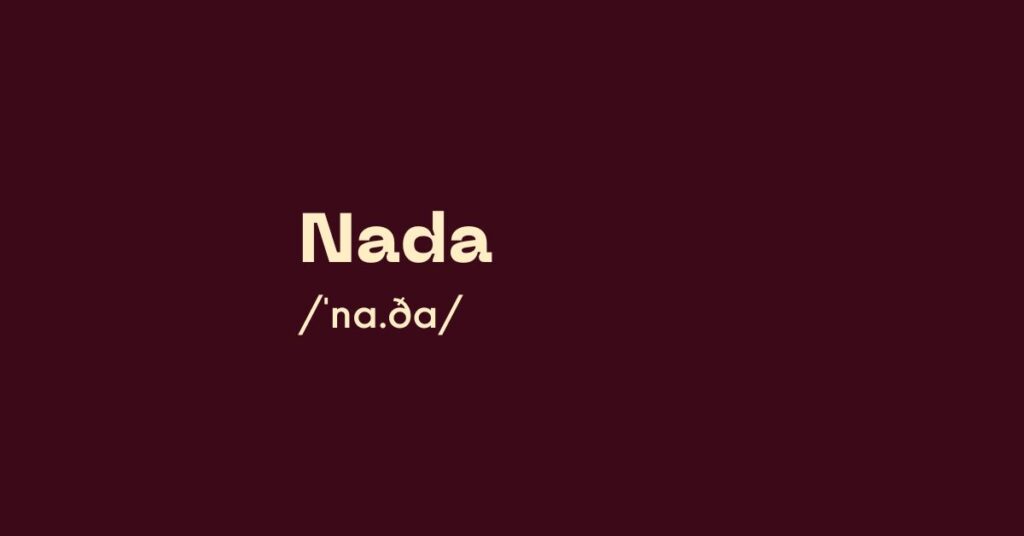Today’s Spanish word of the day is “nada”. It’s an indefinite pronoun meaning “nothing”.
Since Spanish uses the double negative, there are times when “nada” can be translated as “anything”, for example in the phrase “no tengo nada” (“I don’t have anything”). This literally means “I don’t have nothing”, which would generally be considered grammatically incorrect in English.
The word “nada” is also used in a lot of common expressions, such as “de nada”, meaning “you’re welcome” and “no pasa nada”, meaning “don’t worry about it”.
Example sentences
Nada es imposible.
Nothing is impossible.
No tengo nada que hacer.
I don’t have anything to do.
No es nada personal.
It’s nothing personal.
No hay nada en mis bolsillos.
There isn’t anything in my pockets.
Nada más, gracias.
That’s all, thank you.

